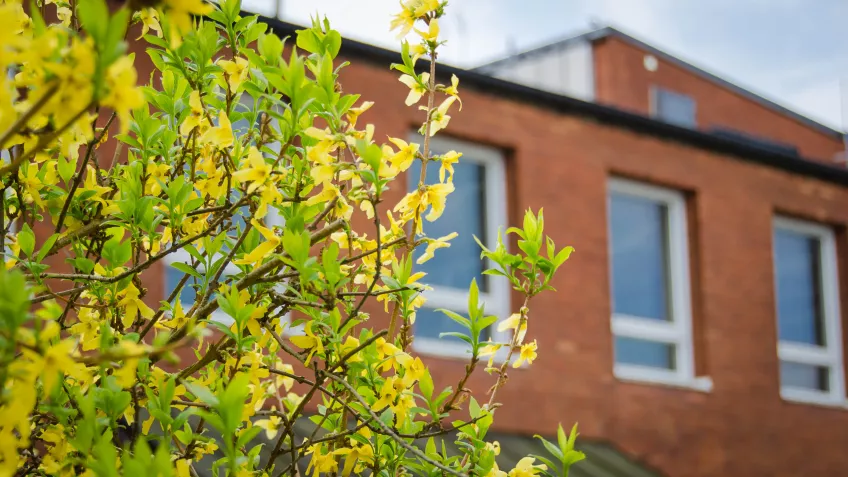The department in brief
The Department of Biology is a new department. It was founded in 2010 through a merger between five departments, but the subject is old. Already at the time when Lund University was founded in 1666, medical students studied botany, which is a part of the subject biology.
Most aspects of biology are covered in the department, both in education and research. We interact with scientists in medicine, technology, physics, chemistry and philosophy and collaborate across boundaries to design new experiments and find fresh ideas. Our premises and infrastructure are modern and include almost everything a biologist might need, from molecular laboratories and electron and confocal microscopes to a field station and a wind tunnel.
Research
Research at the Department of Biology is characterised by cutting-edge fundamental research within various areas, from molecules and protein production to ecological systems, and from genetic code to behaviour. We are additionally very active in several areas of applied research. Among others, this includes night vision, improving crops and food products, conservation biology, pest control and gene-modified organisms. We also have a research museum that lends material to researchers all over the world.
Education
The education in biology and molecular biology is conducted in close contact with our researchers. Most of our teachers are also researchers and our teaching facilities are modern with advanced equipment. We have access to field stations and field excursions are integrated into a great many of our courses. A majority of our students get a job or continue as doctoral students after their studies.
Internationalisation
We have much collaboration with international universities and researchers. Numerous guest researchers visit us for just a few days to several years. Our researchers and doctoral students often travel around the world for shorter or longer times. There is ongoing work on internationalisation within our education and the majority of our courses are given in English.
Outgoing activities
The Department of Biology is engaged in Lund University’s outgoing activities. We participate in the LUNE project, a collaboration between Lund University and Nationalencyklopedin, which turns to pupils in grades 6–9 and the NMT days, when about 6 000 pupils from upper-secondary schools attend lectures in science, medicine and technology. Our skilled students and doctoral students inspire the public with experiments and “fact entertainment” in “Naturvetarstråket” once a year during the Lund Cultural Night. The Biology Show performs for children and adults alike and has also acted in front of international conferences. Our staff often share their knowledge in media, apart from daily papers you may also hear or see them in the radio programme Naturmorgon and the TV programmes Fråga Lund and Studio Natur. They have also been a success in the lecture competition Science Slam in Almedalen, Lund and Stockholm.
Management and organisation
The department board and the head of the department manage the Department of Biology. The head of the department has an executive function and has the responsibility for the daily work. A council consisting of the head of administration and five teachers acts as support to the head and the deputy head of the department. There are also several preparing and consultative organs. The research groups in the department are organised into divisions. Each division has a division manager. The divisions are structured from subject fellowship and usage of joint infrastructures.
The department in figures
The figures are for the year 2022.
Funding
368 million SEK
- 49% Central government allocation
- 23% Government grant providers
- 13% Other Swedish grant providers
- 8% Foreign grant providers
- 7% Applied research
Personnel
- 392 Employees (49% female)
- 82 Other lecturers & researchers
- 72 Doctoral students
- 51 Administrative/Technical staff
- 34 Professors
- 27 Career-development positions
- 26 Senior lectures
Education – bachelor's and master's level
- 450 Students
- 150 Examina
- 13 Programmes
- 60 Courses
Research
- 23 Research groups
- 350 Publications
- 9 Degree of Doctor
The Biological Museum
- 14,5 million plants & animals
- Botanical collections
- Entomolgical collections
- Zoological collections


